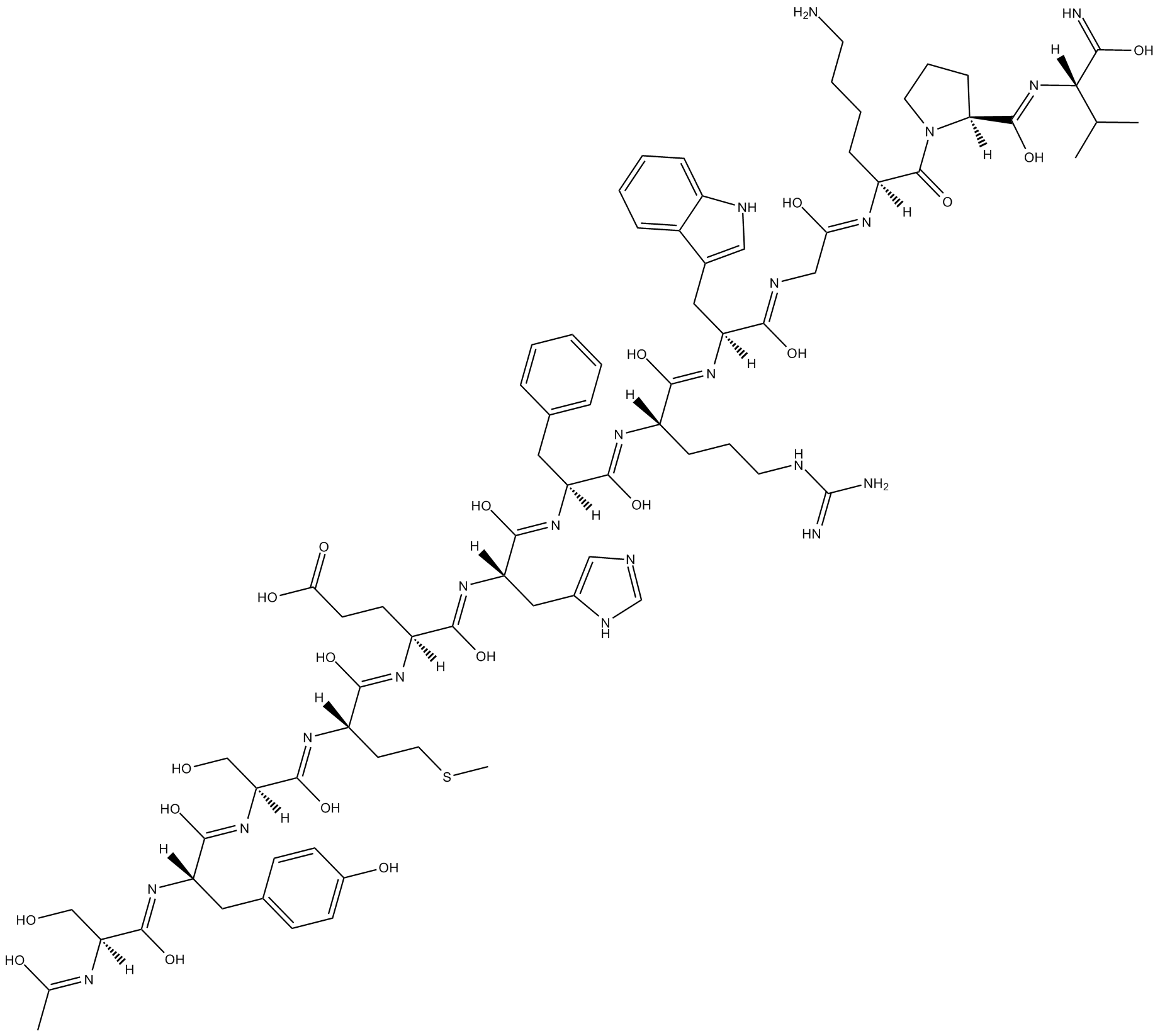Melanocortin (MC) Receptors
Melanocortin receptors (MCRs) comprise a family of five, class A, G protein-coupled receptors designated MC1R-MC5R with diverse physiological roles. MCRs are found in chordates and are regarded as having evolved from a single ancestral receptor, possibly corresponding most closely to MC4R. Signaling by MCRs has primarily been observed as occurring through the stimulatory α unit Gs which activates adenylyl cyclase to produce cAMP.
The central nervous melanocortin system is involved in energy homeostasis, regulating food intake and energy expenditure. The brain melanocortin system is defined as the primary neurons that express neuropeptide ligands, and secondary neurons expressing the predominant neural melanocortin receptors (MC3R, MC4R). Mutations in the gene encoding melanocortin receptor agonists, or the genes encoding MC3R or MC4R cause obesity. The other members of the melanocortin receptor family are primarily expressed in the periphery, and are involved in regulating pigmentation (MC1R), adrenal gland function (MC2R), immune function (MC1R/MC3R), and sebaceous gland activity (MC5R).
Products for Melanocortin (MC) Receptors
- Cat.No. Product Name Information
-
GC38007
β-Melanocyte Stimulating Hormone (MSH), human TFA
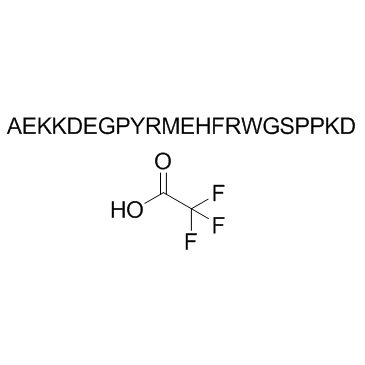
-
GC61462
γ-1-Melanocyte Stimulating Hormone (MSH), amide
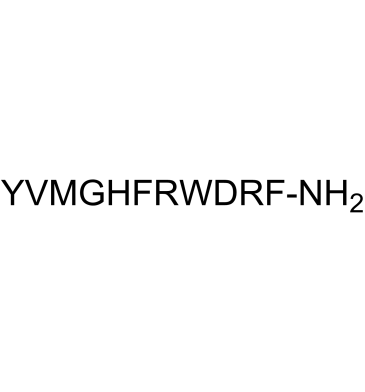
-
GC17002
γ1-MSH
γ1-MSH is a melanocortin MC3 receptor agonist, with a Ki of 34 nM for the rat MC3 receptor.
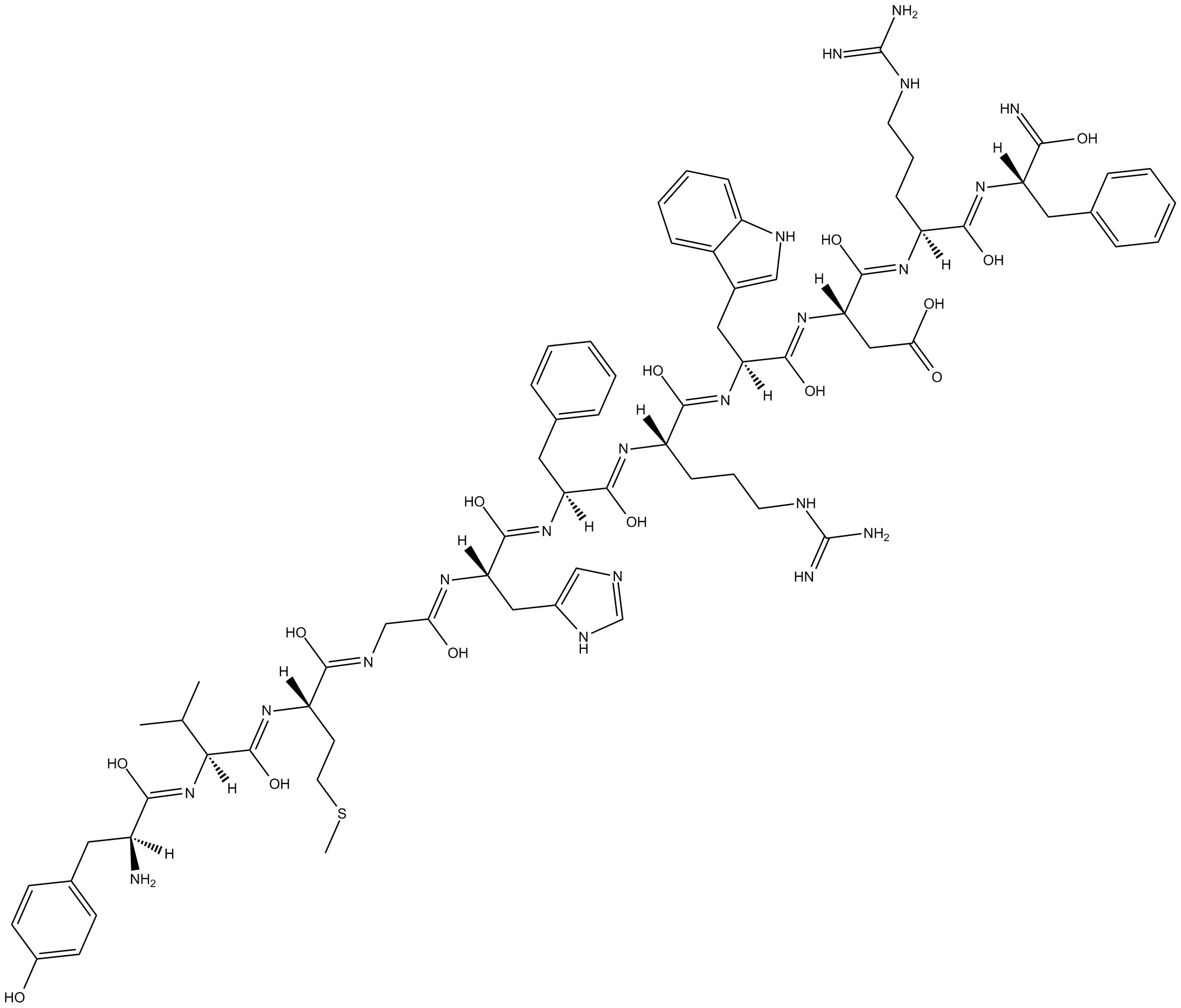
-
GC33693
β-Melanocyte Stimulating Hormone (MSH), human (Beta-MSH (1-22) (human))
β-Melanocyte Stimulating Hormone (MSH), human (Beta-MSH (1-22) (human)), a 22-residue peptide, acts as an endogenous melanocortin-4 receptor (MC4-R) agonist.
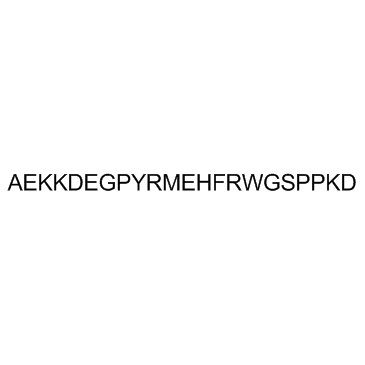
-
GC34231
γ-1-Melanocyte Stimulating Hormone (MSH), amide
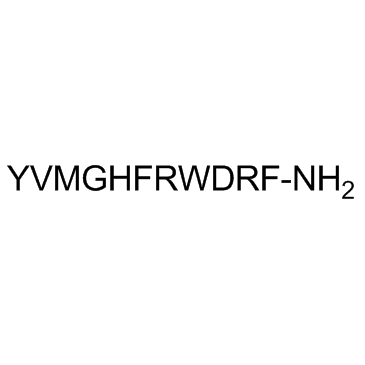
-
GC35244
ACTH (1-17) TFA
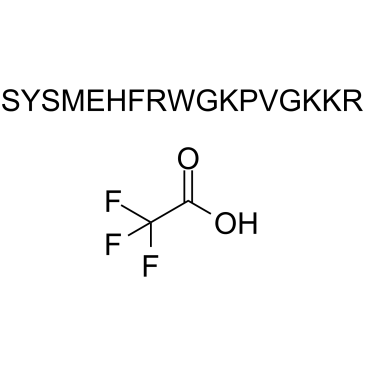
-
GC12239
ACTH (1-39)
ACTH (1-39) is a melanocortin receptor agonist.
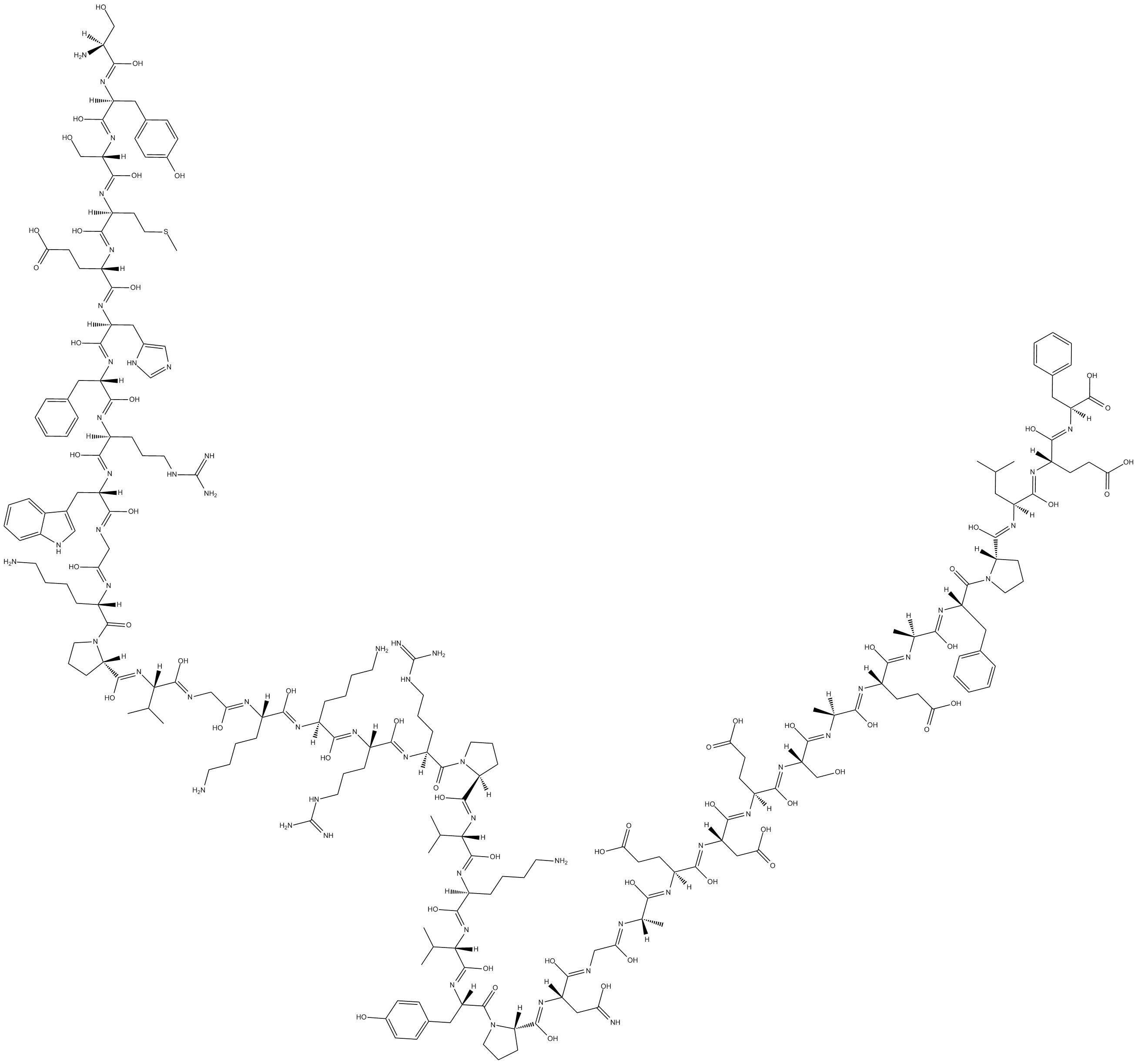
-
GC66383
ACTH (11-24) (acetate)
ACTH (11-24) (acetate) is an adrenocorticotropic hormone (ACTH) receptor antagonist. ACTH (11-24) is a fragment of adrenocorticotropic and induces cortisol release. ACTH (11-24) can be used for the research of central nervous system.

-
GC31109
ACTH 1-17 (α1-17-ACTH)
ACTH 1-17 (α1-17-ACTH), an adrenocorticotropin analogue, is a potent human melanocortin 1 (MC1) receptor agonist with a Ki of 0.21 nM.
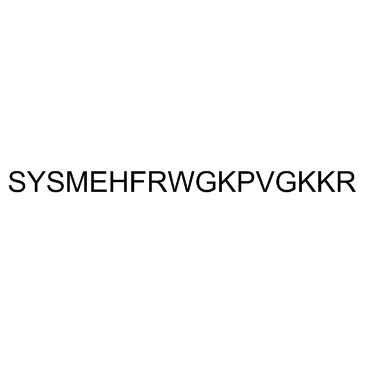
-
GC31954
ACTH 11-24 (Adrenocorticotropic Hormone (11-24))
ACTH 11-24 (Adrenocorticotropic Hormone (11-24)) is an adrenocorticotropic hormone (ACTH) receptor antagonist.
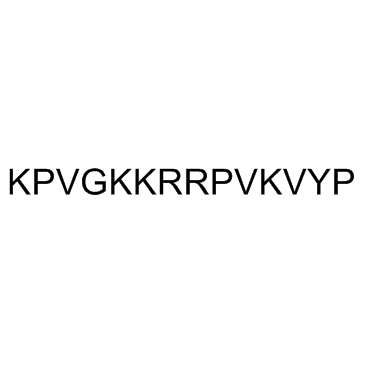
-
GC35254
Adrenocorticotropic Hormone (ACTH) (1-39), rat
Adrenocorticotropic Hormone (ACTH) (1-39), rat is a potent melanocortin 2 (MC2) receptor agonist.
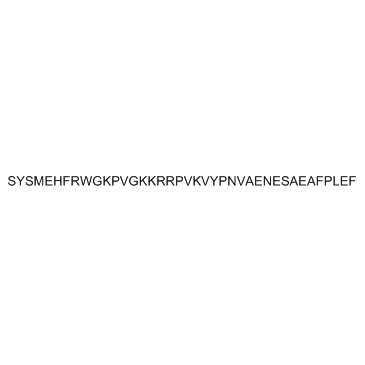
-
GC35255
Adrenocorticotropic Hormone (ACTH) (1-39), rat TFA
Adrenocorticotropic Hormone (ACTH) (1-39), rat (TFA) is a potent melanocortin 2 (MC2) receptor agonist.
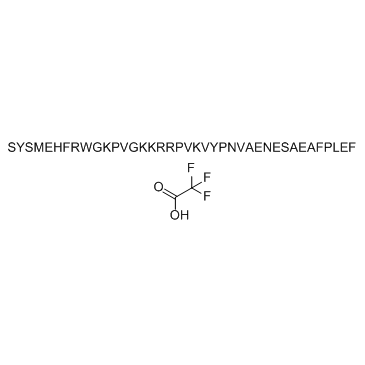
-
GC34002
Bremelanotide Acetate (PT-141 Acetate)
Bremelanotide Acetate (PT-141 Acetate) (PT-141 Acetate), a synthetic peptide analogue of α-MSH, is an agonist at melanocortin receptors including the MC3R and MC4R for the treatment of sexual dysfunction.
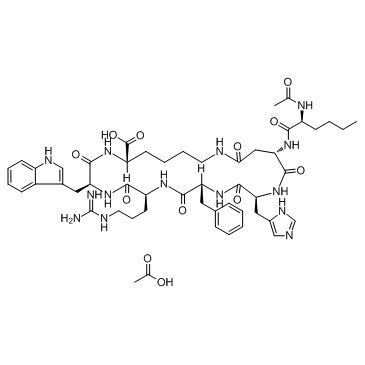
-
GC64525
Fenoprofen
Fenoprofen (LILLY-53858) is a nonsteroidal anti-inflammatory agent (NSAID).
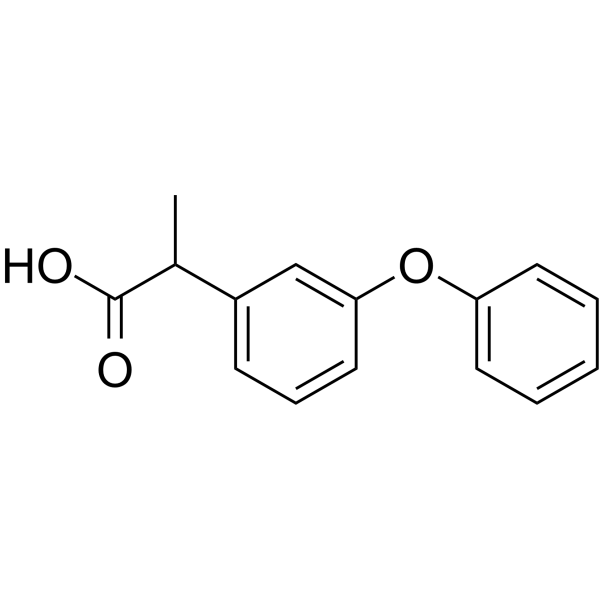
-
GC12840
HS 014
melanocortin MC4 receptor antagonist
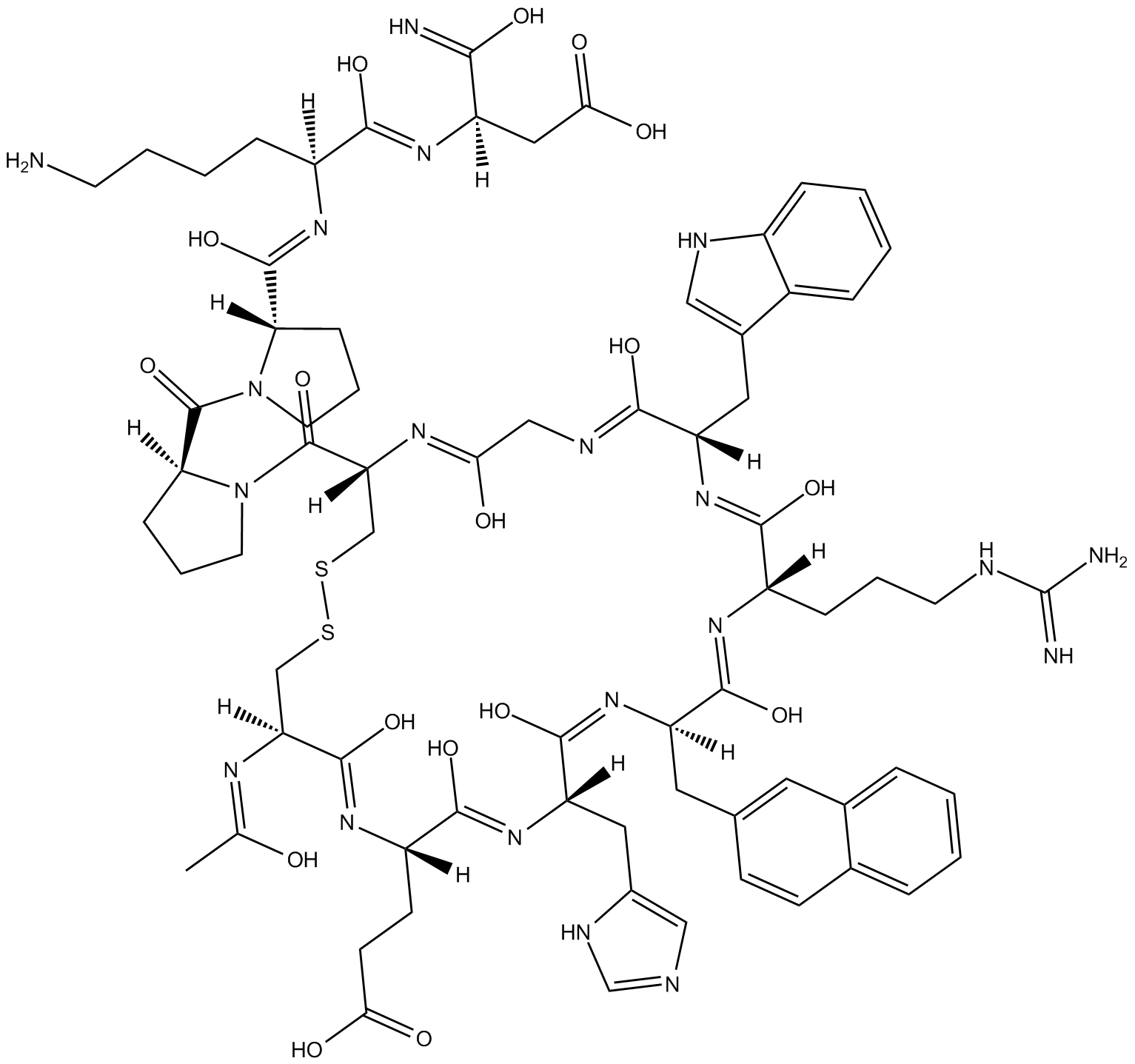
-
GC10747
HS 024
melanocortin MC4 receptor antagonist
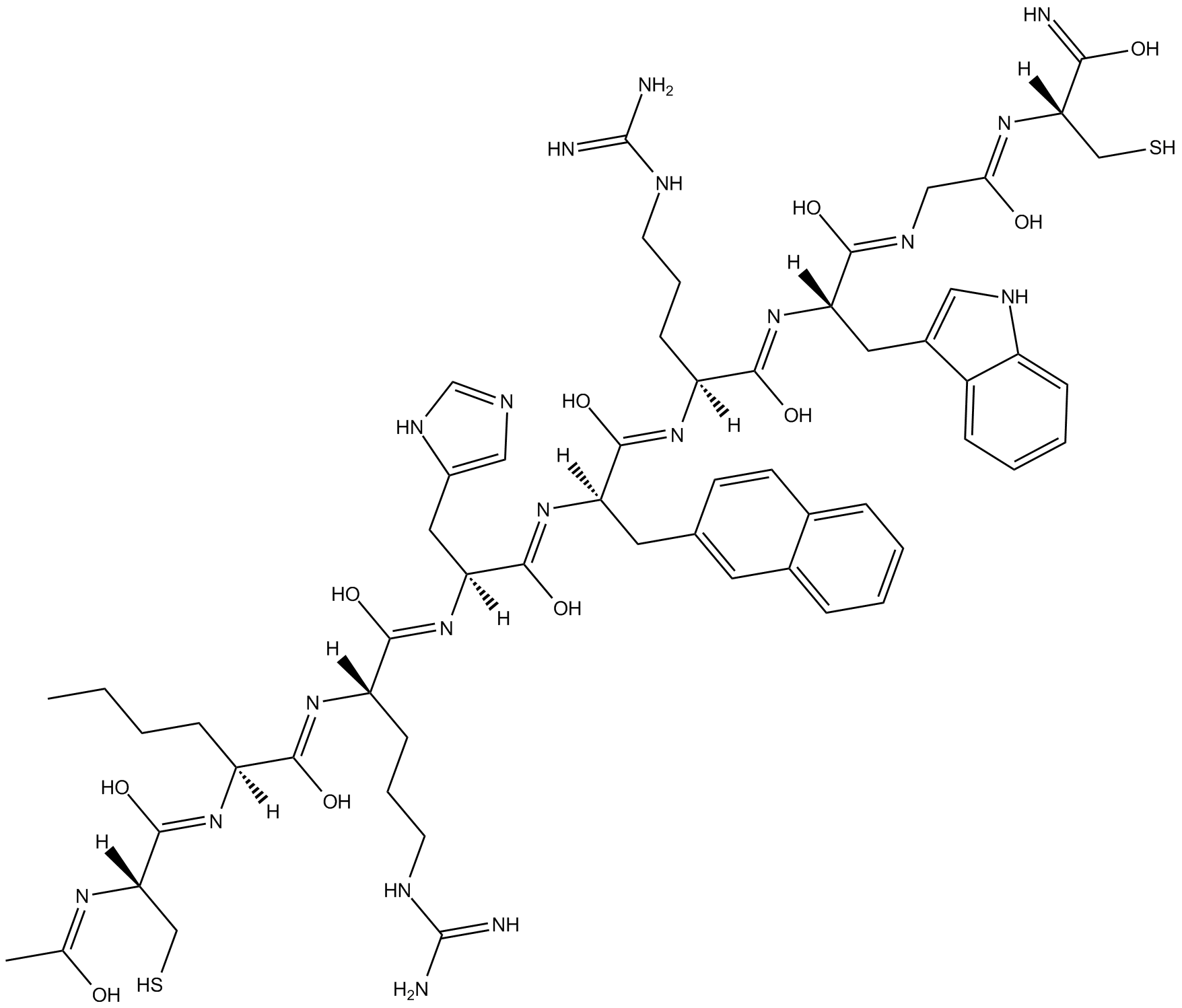
-
GC63724
HS014 TFA
HS014 TFA is a potent and selective melanocortin-4 (MC4) receptor antagonist, with Kis of 3.16, 108, 54.4 and 694 nM for human MC4, MC1, MC3 and MC5 receptors respectively.
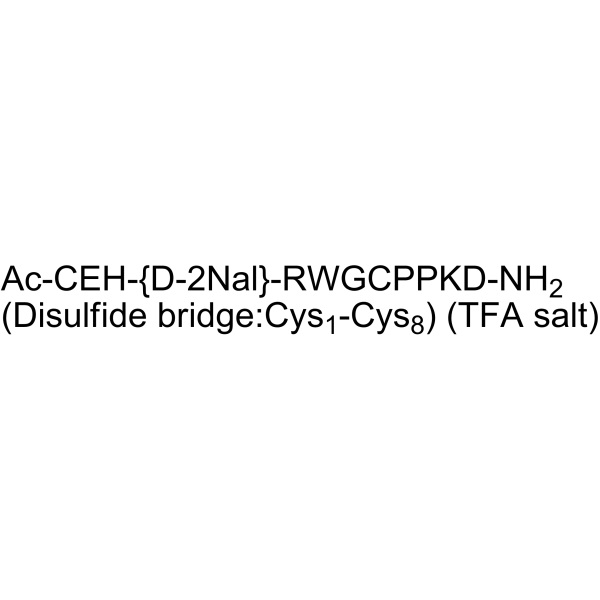
-
GC63770
HS024 TFA
HS024 is a selective MC4 receptor antagonist, with Kis of 0.29, 3.29, 5.45, 18.6 nM for MC4, MC5, MC3, and MC1, respectively.
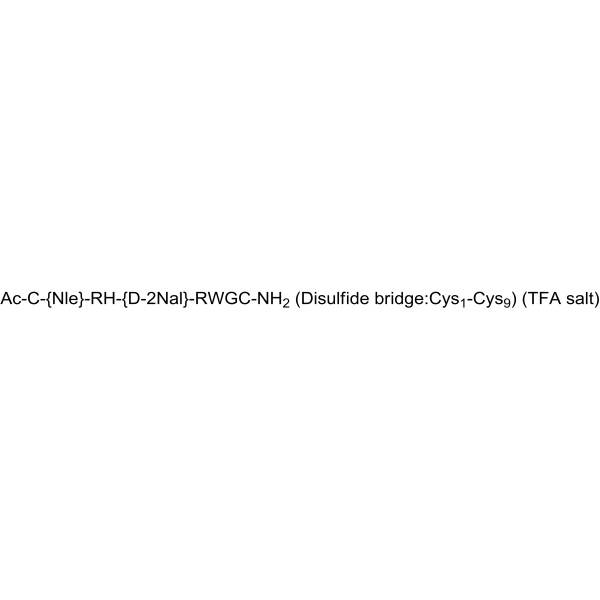
-
GC10701
JKC 363
melanocortin MC4 receptor antagonist
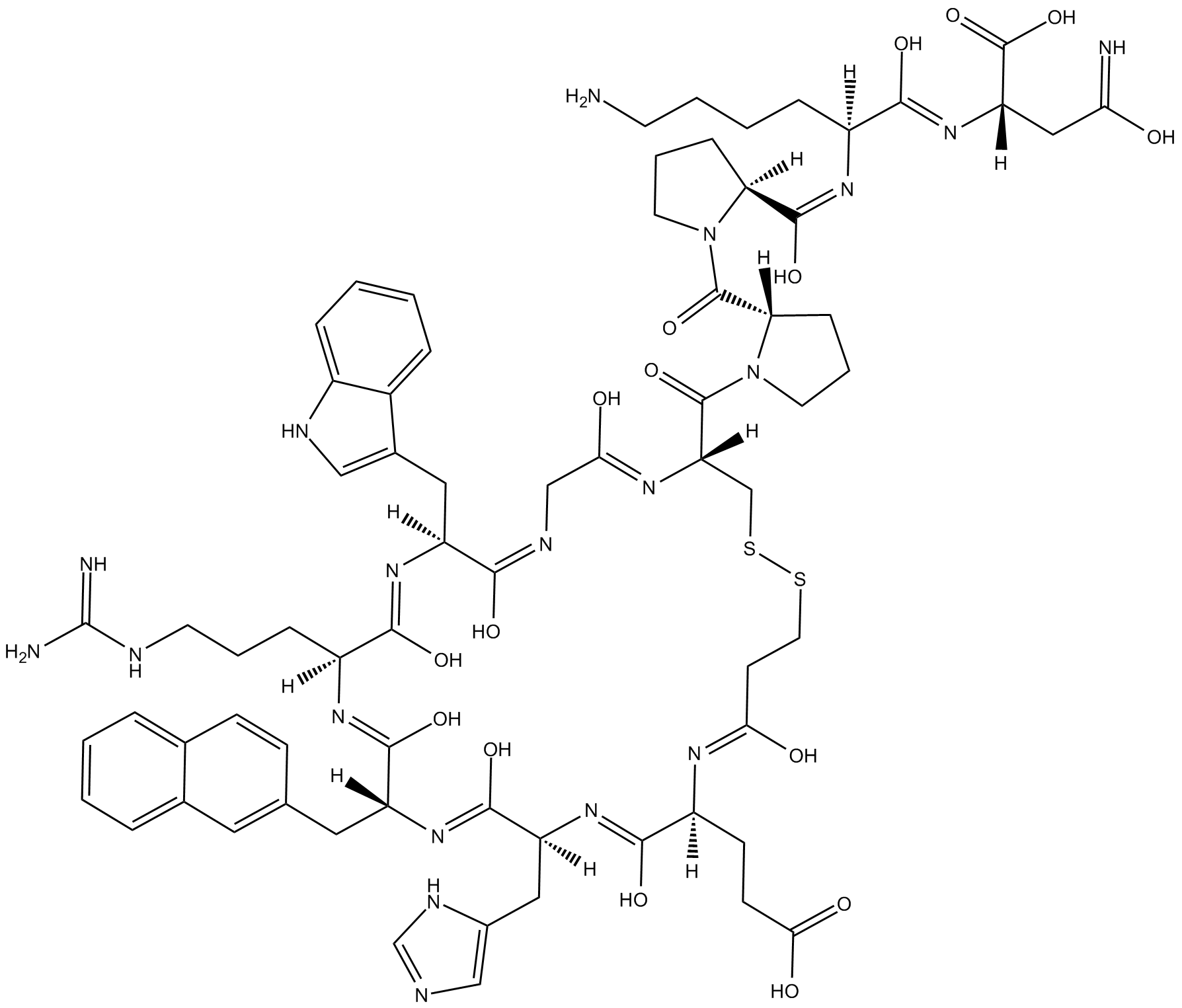
-
GC30194
JNJ-10229570
JNJ-10229570 is an antagonist of melanocortin receptor 1 (MC1R) and melanocortin receptor 5 (MC5R), which inhibits sebaceous gland differentiation and the production of sebum-specific lipids.
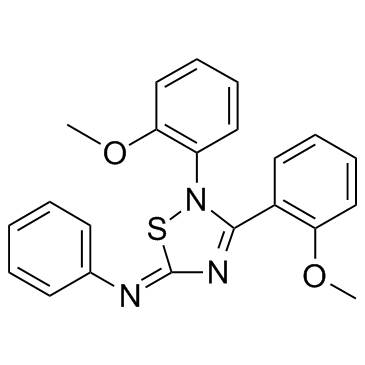
-
GC13806
Lys-γ3-MSH
Lys-γ3-MSH is a melanocortin peptide derived from the C-terminal of the fragment of pro-opiomelanocortin (POMC).
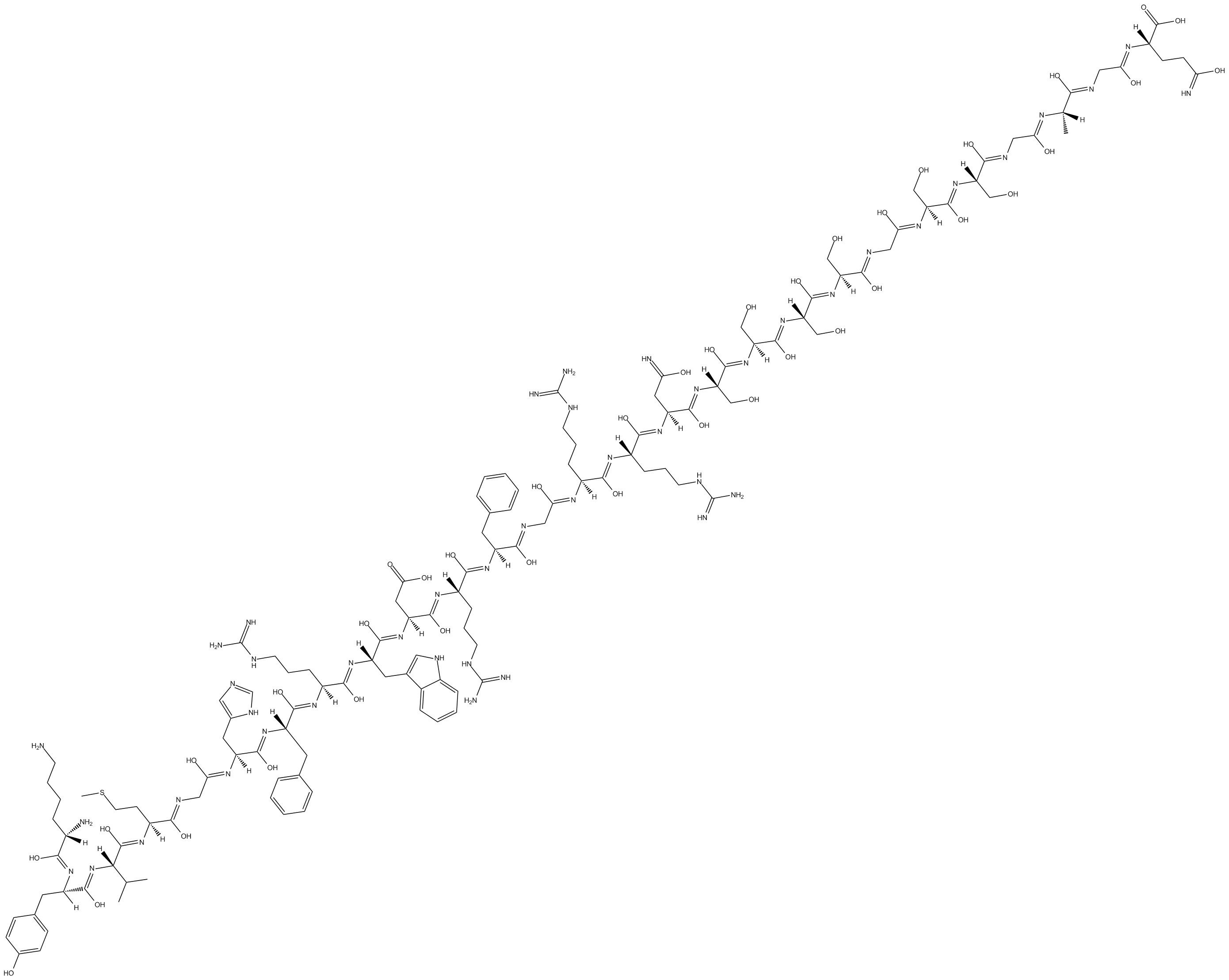
-
GC31629
MC-4R Agonist 1
MC-4R Agonist 1 is an agonist of human melanocortin-4 receptor (MC-4R), used in the research of obesity, diabetes, and sexual dysfunction.
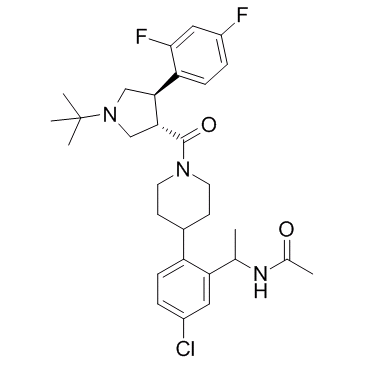
-
GC14127
MCL 0020
melanocortin MC4 receptor antagonist
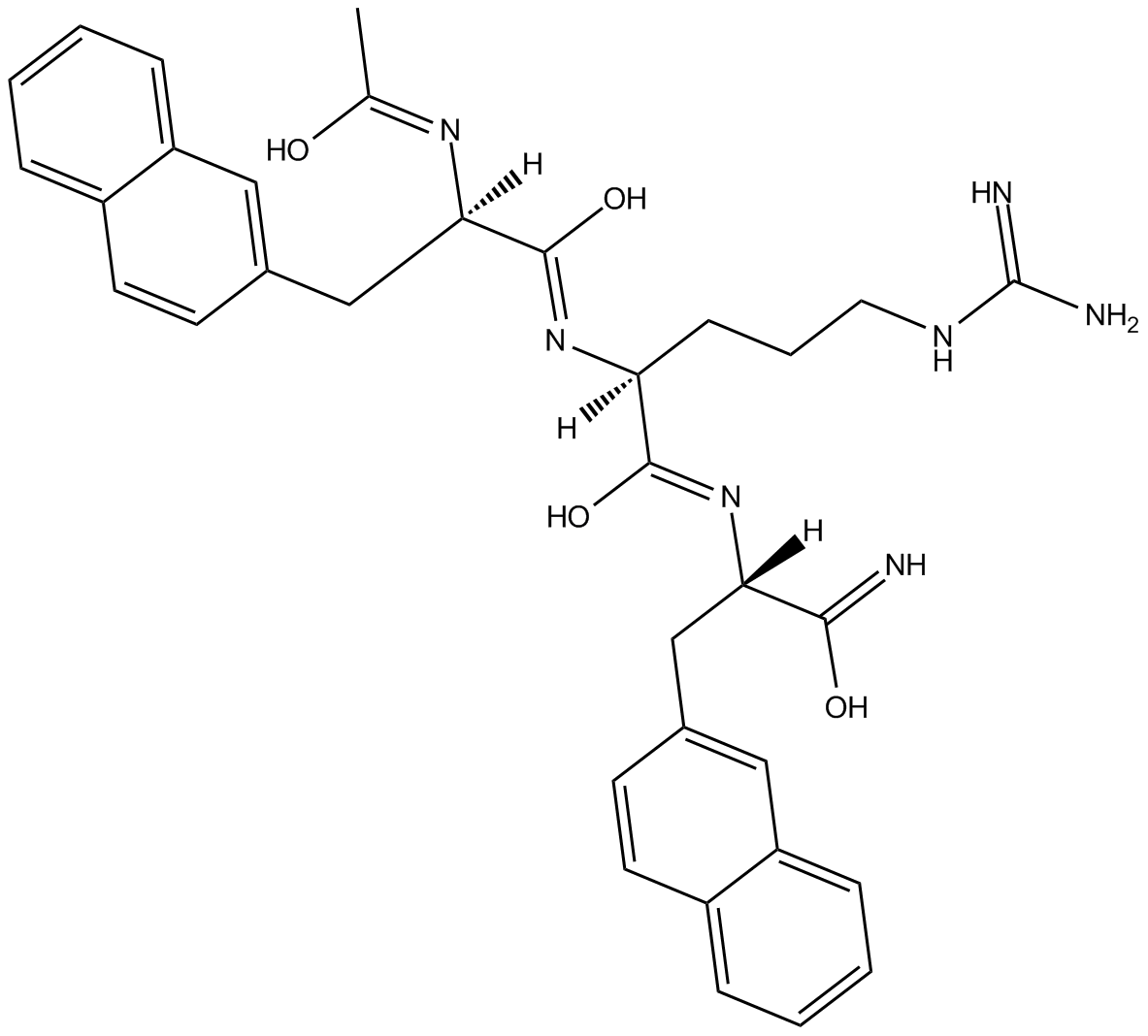
-
GC16276
Melanotan II
Melanotan II, a synthetic melanocortin receptor agonist, is an injectable peptide hormone used to promote tanning.
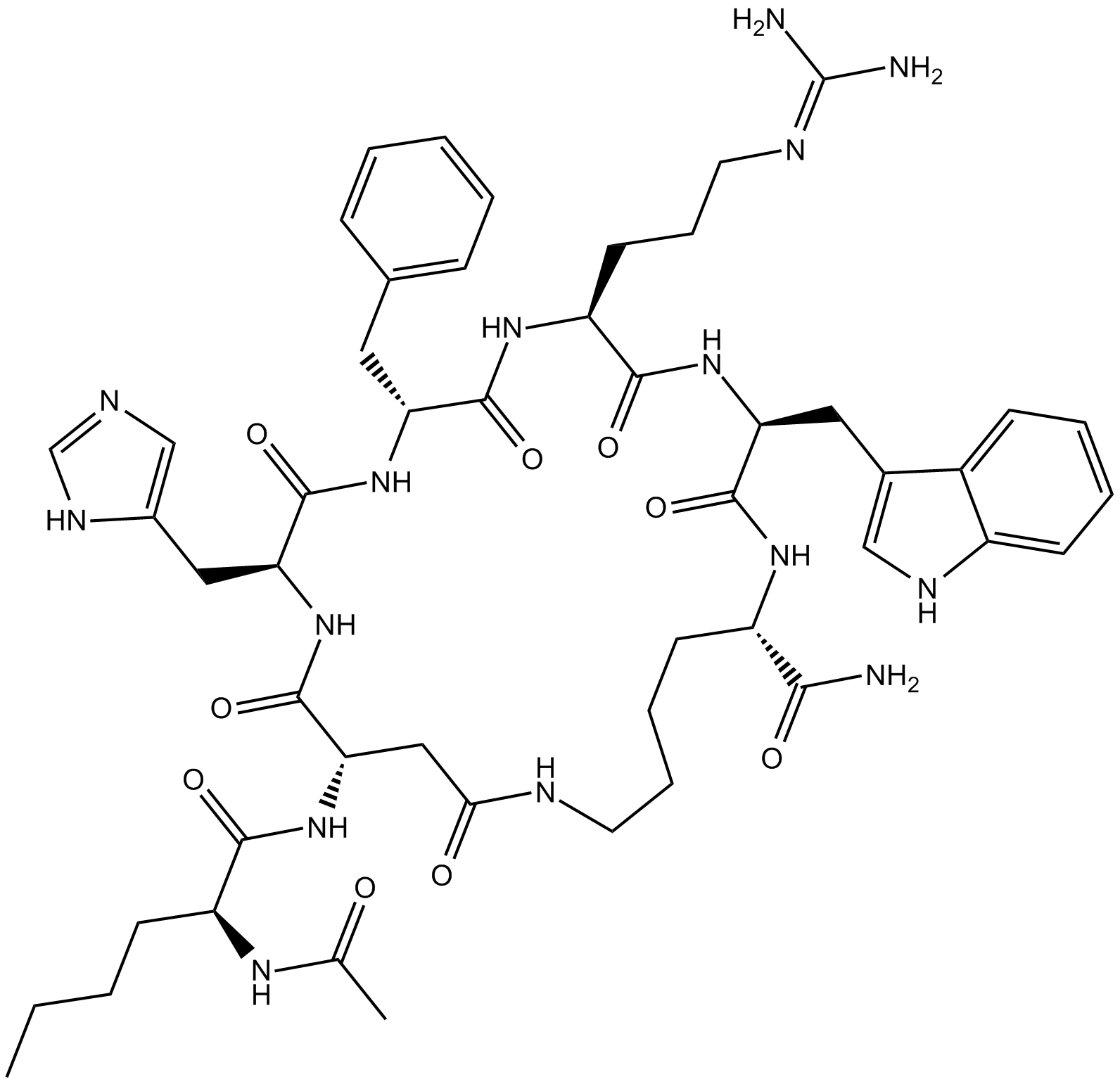
-
GC64427
MK-0493
MK-0493 is a potent, orally active and selective agonist of the melanocortin receptor 4 (MC4R), demonstrating significant reductions in energy intake.
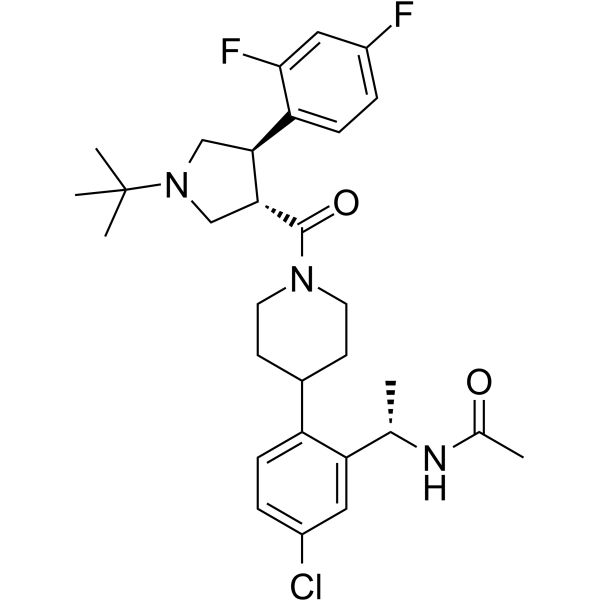
-
GC13798
ML 00253764 hydrochloride
melanocortin MC4 receptor antagonist
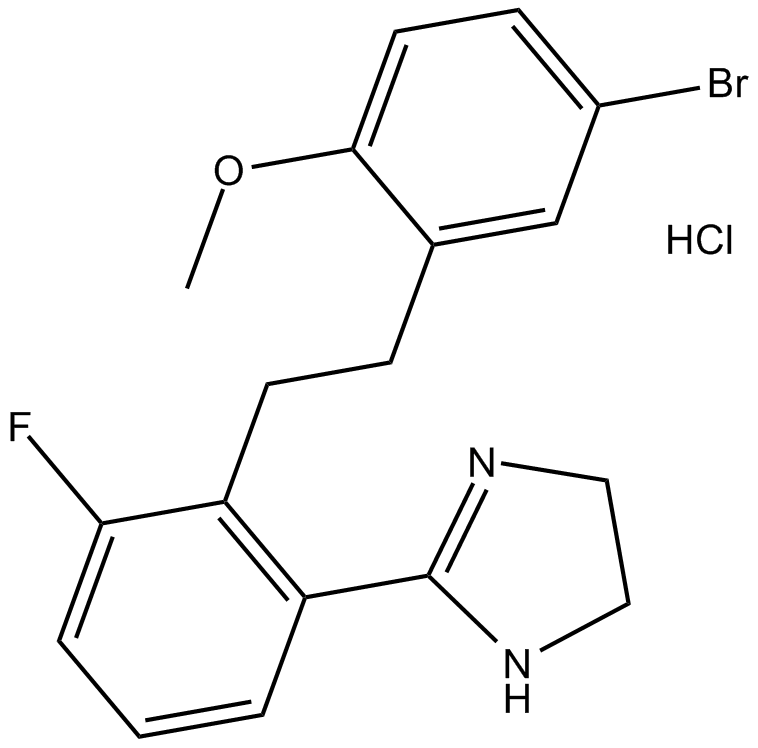
-
GC50303
MSG 606
MSG-606 has potent antagonist activity and receptor selectivity for the human melanocortin 1 receptor (hMC1R) (IC50 = 17 nM) .

-
GC36727
Neuropeptide EI, rat
Neuropeptide EI, rat displays functional melanin concentrating hormone (MCH)-antagonist and melanocyte-stimulating hormone (MSH) agonist activity in different behavioral paradigms.
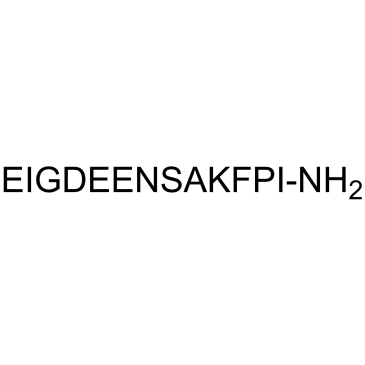
-
GC36756
Nonapeptide-1 acetate salt
Nonapeptide-1 (Melanostatine-5) acetate salt, a peptide hormone, is a selective antagonist of MC1R (Ki: 40 nM).
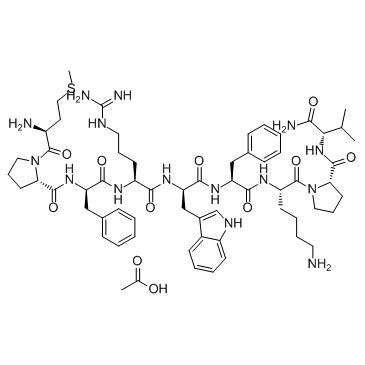
-
GC32420
PF-00446687
PF-00446687 is a potent, selective melanocortin-4 receptor (MC4R) agonist with EC50 of 12?±?1 nM.
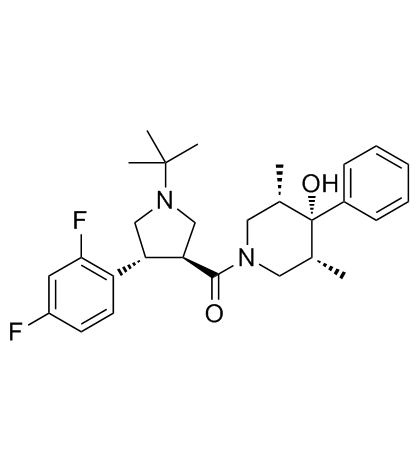
-
GC12163
PG 106
hMC3 receptor antagonist
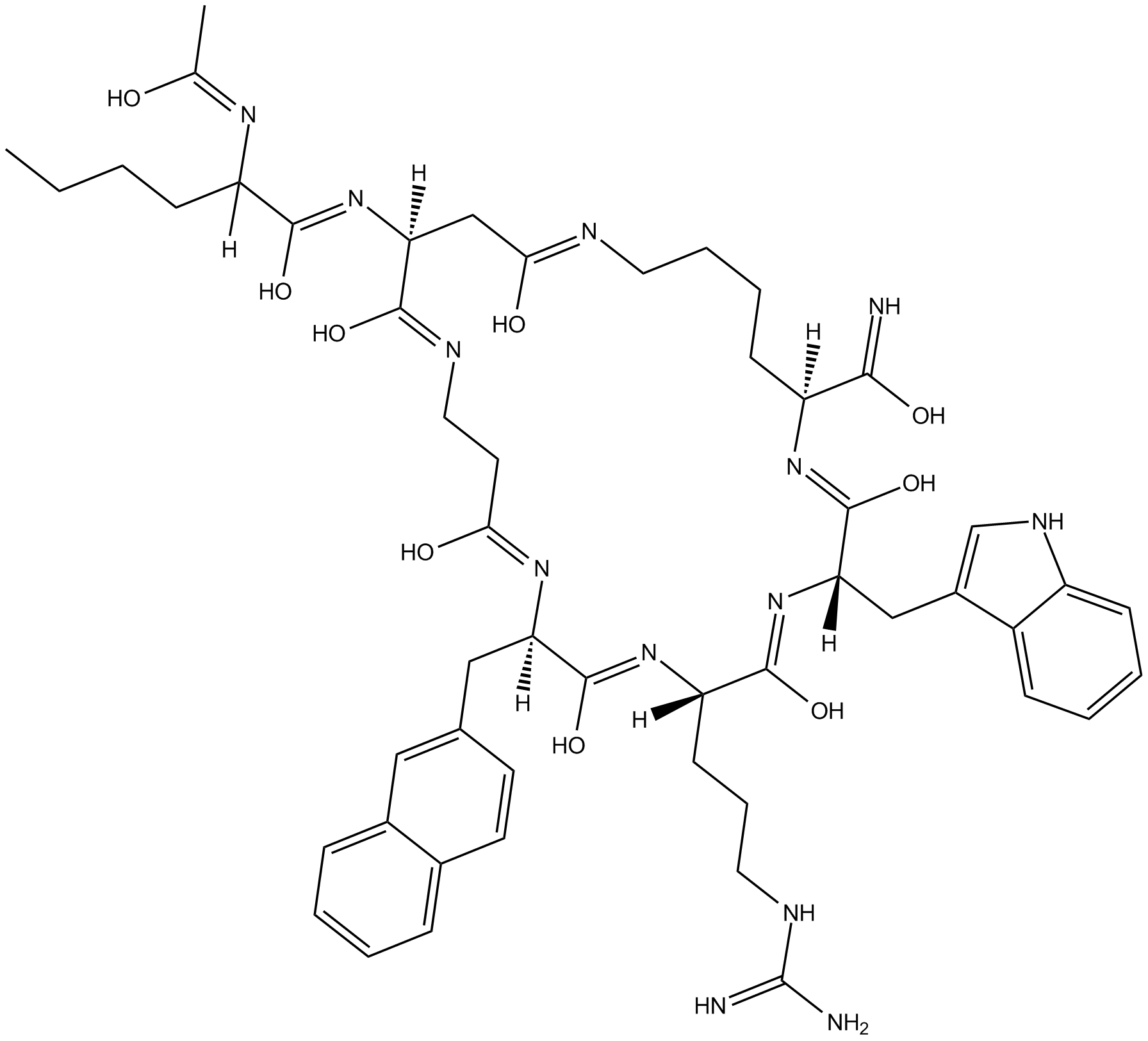
-
GC17626
PG 931
melanocortin 4 (MC4) receptor agonist
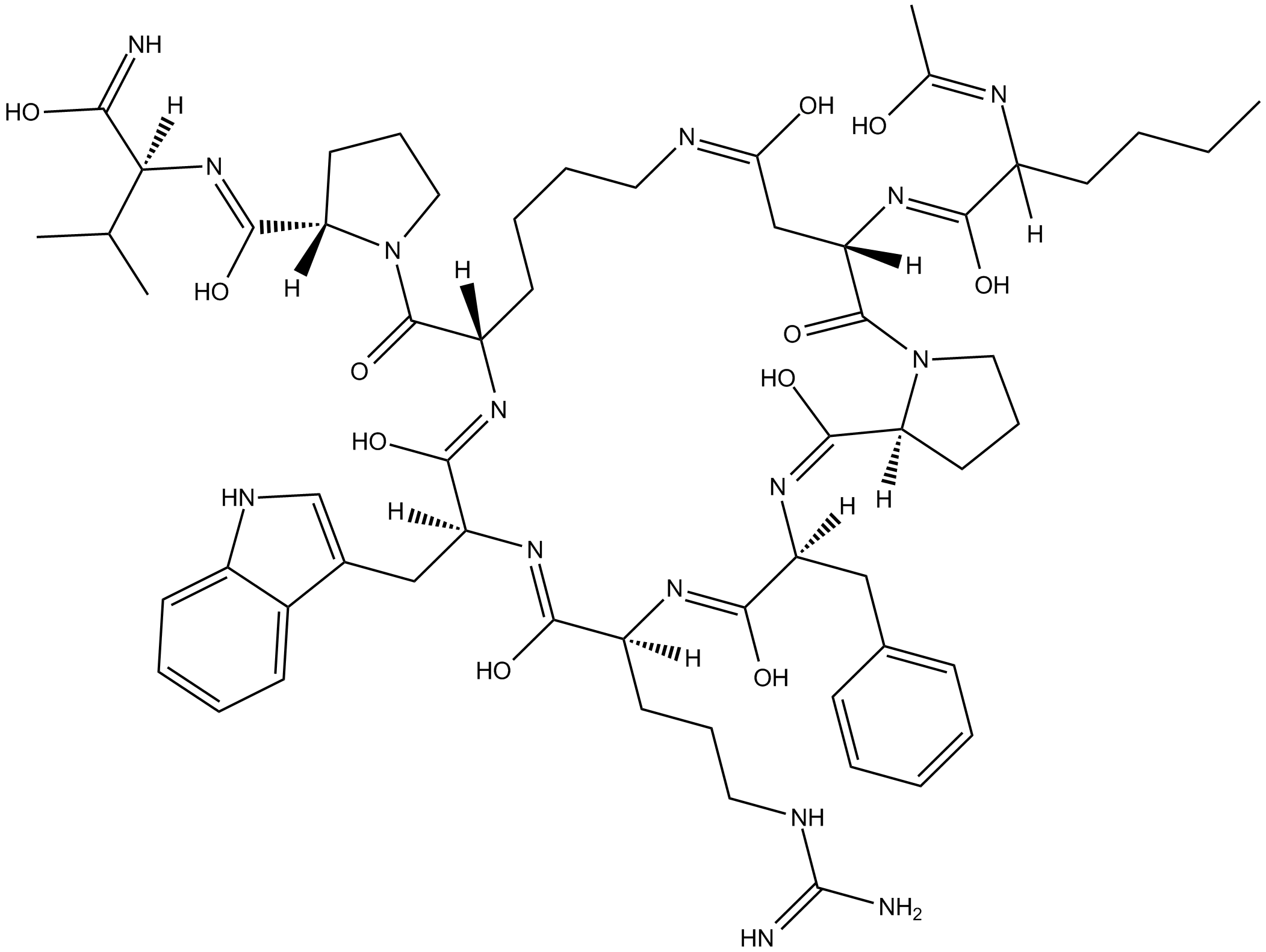
-
GC63756
PG106 TFA
PG106 TFA is a potent and selective human melanocortin 3 (hMC3) receptor antagonist (IC50= 210 nM) and has noactivity at?hMC4?receptors (EC50=9900 nM) and?hMC5?receptor.
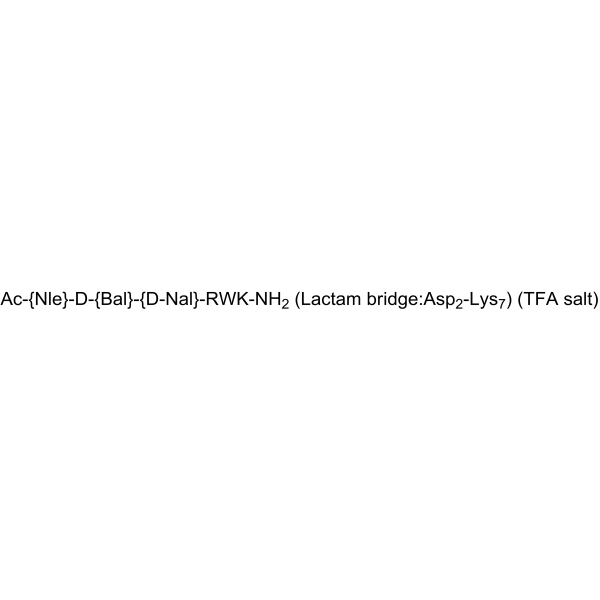
-
GC69813
Resomelagon
Resomelagon (AP1189) is an orally effective melanocortin receptor (MR) agonist, including MC1 and MC3. Resomelagon induces phosphorylation of ERK1/2 and Ca2+ flow. Resomelagon has anti-inflammatory activity. Resomelagon can be used for obesity and chronic inflammation research.
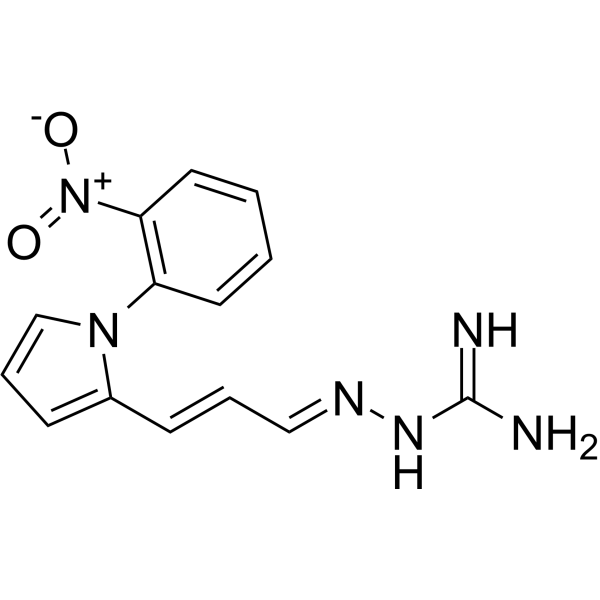
-
GC69814
Resomelagon acetate
Resomelagon (AP1189) acetate is an orally effective melanocortin receptor (MR) agonist, including MC1 and MC3. Resomelagon acetate induces ERK1/2 phosphorylation and Ca2+ flux. Resomelagon acetate has anti-inflammatory activity. Resomelagon acetate can be used for obesity and chronic inflammation research.
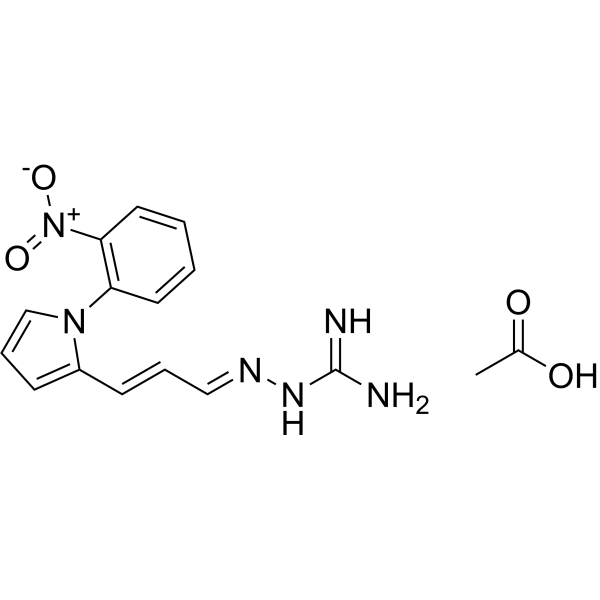
-
GC37629
Setmelanotide TFA
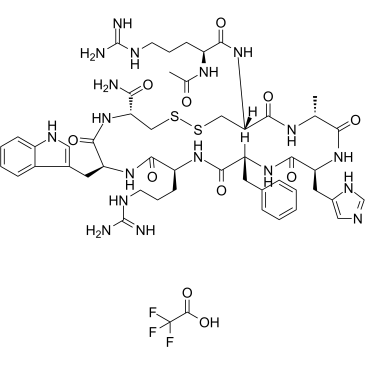
-
GC13565
SHU 9119
melanocortin MC3 and MC4 receptor antagonist
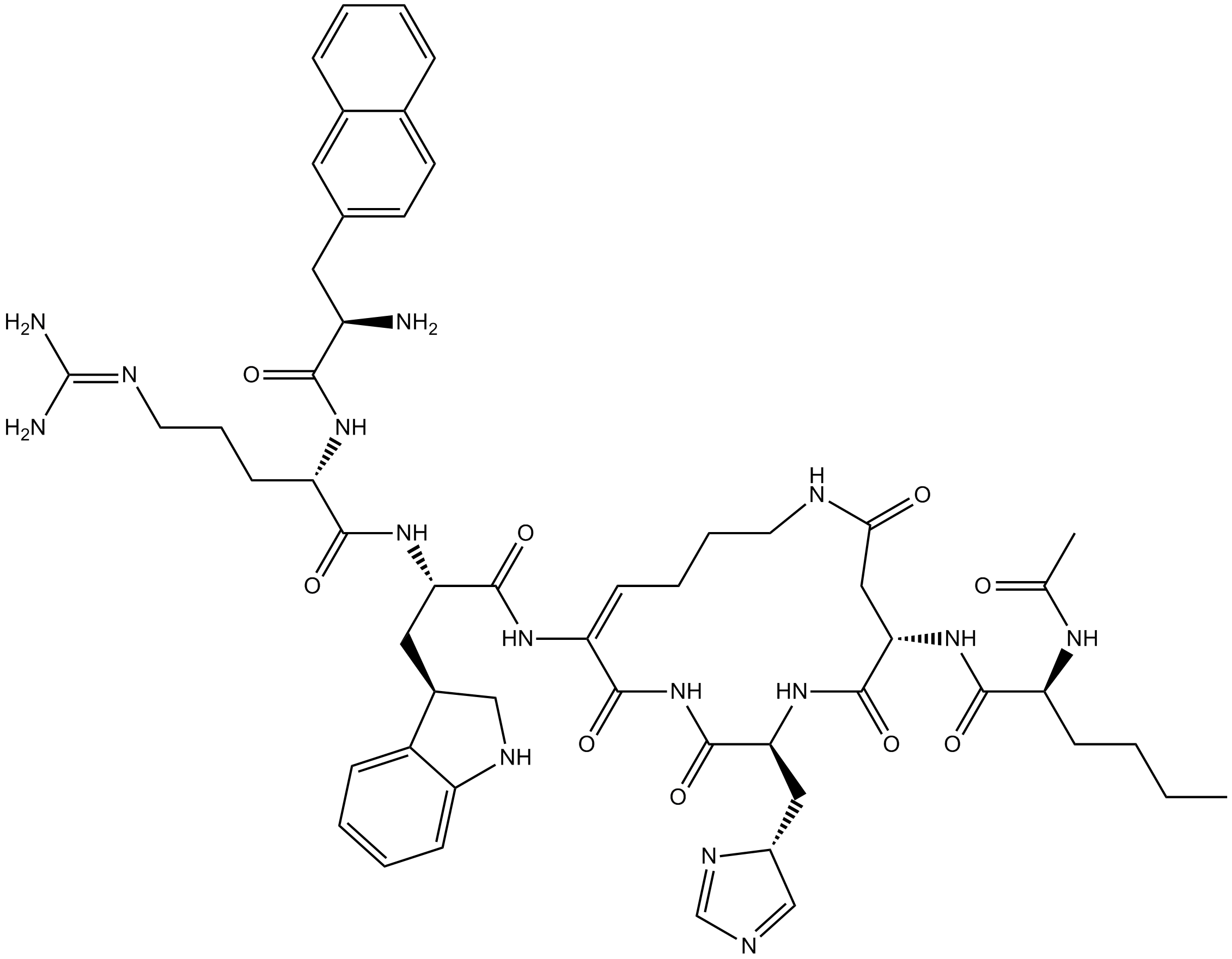
-
GC31600
SNT-207707
SNT-207707 is a selective, potent and orally active melanocortin MC-4 receptor antagonist with an IC50 of 8 nM (binding) and 5 nM (function) on the MC-4 receptor.
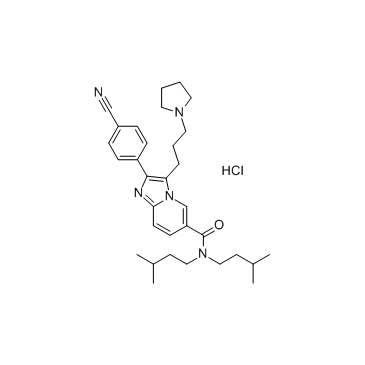
-
GC31560
SNT-207858
SNT207858 is a selective, blood brain barrier penetrating, potent and orally active melanocortin-4 (MC-4) receptor antagonist.
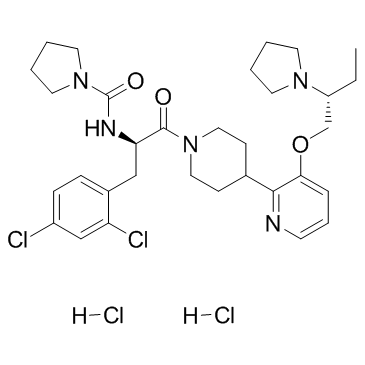
-
GC38107
SNT-207858 free base
SNT207858 free base is a selective, blood brain barrier penetrating, potent and orally active melanocortin-4 (MC-4) receptor antagonist.
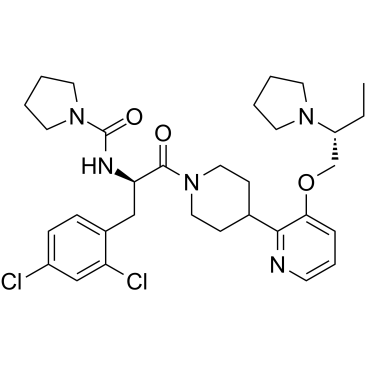
-
GC18458
Terrein
Terrein is a fungal metabolite produced by A.
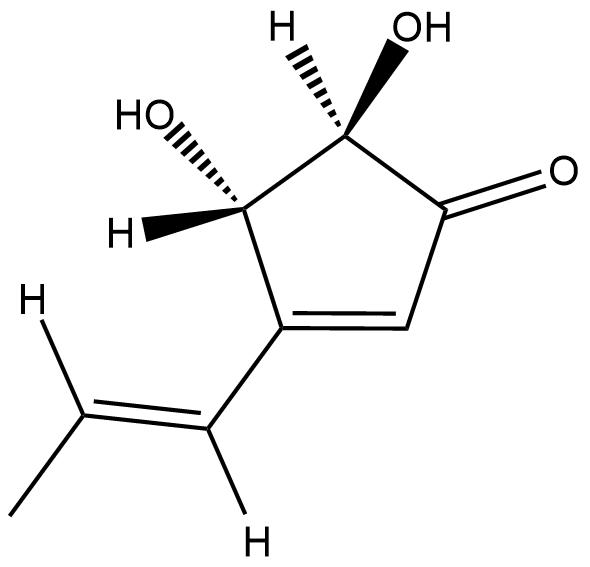
-
GC16069
THIQ
melanocortin 4 (MC4) receptor agonist
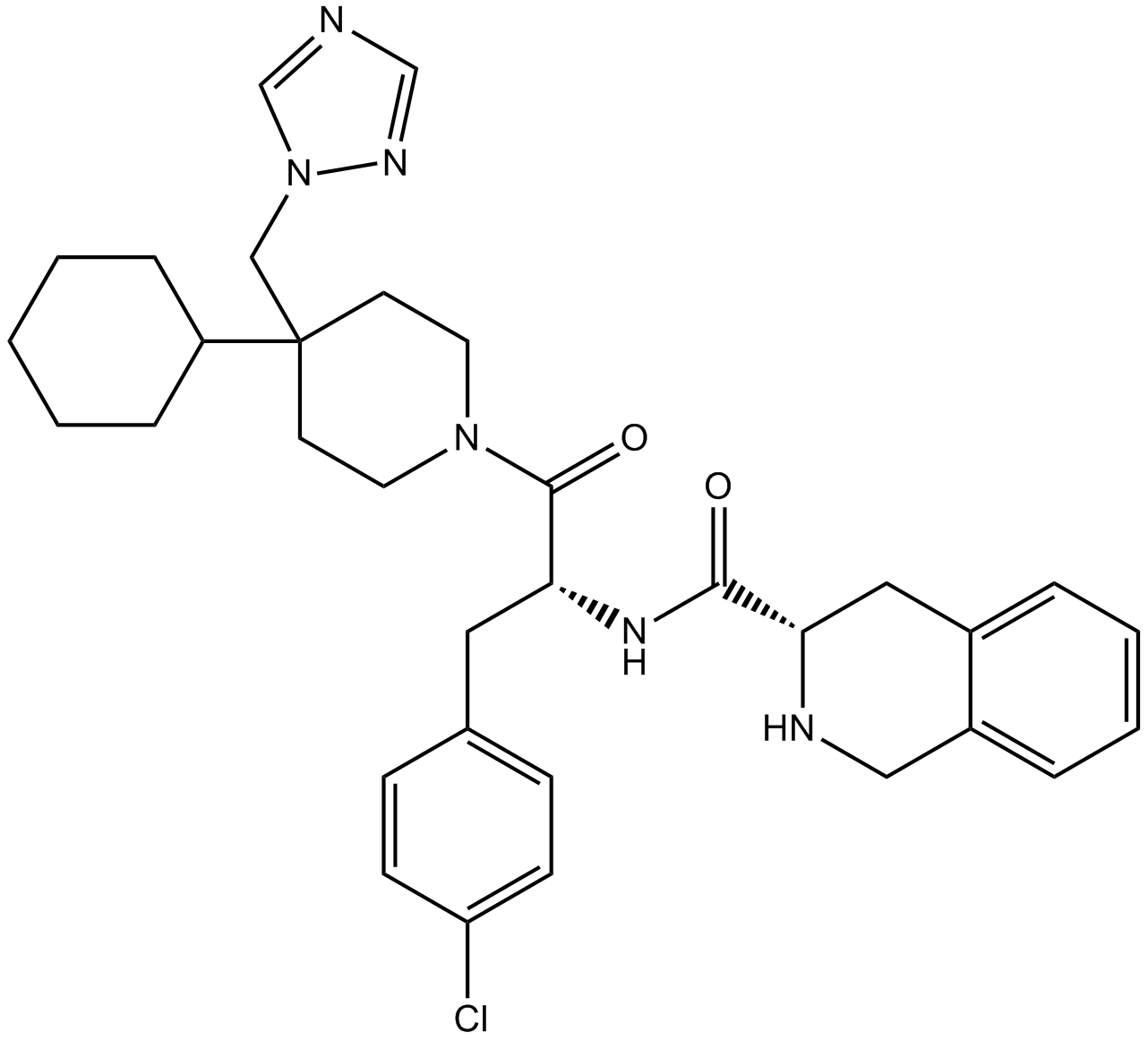
-
GC10947
[D-Trp8]-γ-MSH
[D-Trp8]-γ-MSH is a potent and selective agonist of melanocortin 3 (MC3) receptor, with IC50s of 6.7 nM, 600 nM and 340 nM for hMC3, hMC4 and hMC5, respectively in CHO cells.
![[D-Trp8]-γ-MSH Chemical Structure [D-Trp8]-γ-MSH Chemical Structure](/media/struct/GC1/GC10947.png)
-
GC13068
[Nle4,D-Phe7]-α-MSH
[Nle4,D-Phe7]-α-MSH is a potent non-selective melanocortin receptor (MCR) agonist. [Nle4,D-Phe7]-α-MSH is a synthetic analogue of α-melanocyte stimulating hormone (α-MSH) that stimulates melanogenesis. [Nle4,D-Phe7]-α-MSH can induce skin tanning by mimicking the actions of a-MSH on the melanocortin type 1 receptors (MC1R) of melanocytes. [Nle4,D-Phe7]-α-MSH can be used for sunlight-induced skin cancers research.
![[Nle4,D-Phe7]-α-MSH Chemical Structure [Nle4,D-Phe7]-α-MSH Chemical Structure](/media/struct/GC1/GC13068.png)
-
GC14374
α-MSH
Alpha-melanocyte stimulating hormone (α-MSH) is a neuropeptide with immunomodulatory properties.
